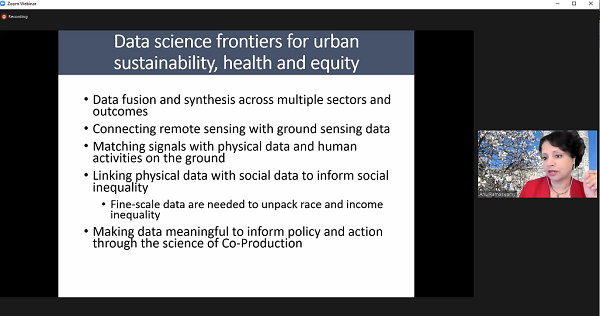NJEdge’s “Research as a Service” Network Could Level the Playing Field for Universities, Conn Says at Annual Conference
New Jersey universities will be able to plug into the network for minimal cost and conduct high-level research without requiring any infrastructure on campus.
EdgeCon 2019, a conference that took place on January 9-11 in Long Branch, attracted hundreds of IT and communications networking professionals from New Jersey universities, K-12 educational systems and governments. Each year, these professionals come together at EdgeCon conferences, sponsored by NJEdge (Newark), to learn best practices and to network with their colleagues.
During this year’s conference, NJTechWeekly.com spoke to Samuel Conn, president and CEO of NJEdge, about the changes happening in the world of tech in New Jersey and how NJEdge is addressing them.
NJEdge is a nonprofit membership organization that provides access to a shared private network, computer products, software and services via a marketplace and, now, professional services.
Research as a Service
One of the initiatives Conn is most proud of is the evolution of NJEdge’s fiber optic network, which the organization makes available to its university members. A new program is designed to create a level playing field for university researchers who need high-speed networking resources in order to collaborate with their colleagues.
“NJEdge is in a leadership position with the Eastern Research Network, which will ultimately connect nationally onto the National Research Platform,” as discussed at the NRP Workshop in 2018, said Conn. “We are working in partnership with Internet2 (Washington, D.C.) and research institutions to build that out.” He added that the designs they’re driving are reaching out into New York, Pennsylvania, Connecticut and Rhode Island.
“This is meant to bring virtualization to research. You’ve heard about Software as a Service or Platform as a Service. This is revolutionary. The idea that you can be any institution and plug into to a science DMZ [network architecture] and have the full capability to conduct research with mass data storage and high-performance computing, and you don’t have to make any investment on your campus at all” is unprecedented.
“It enables institutions without infrastructure to just plug in and have the equipment … and they can instantly become a national player in research. It levels the playing field. We are excited about this and that it’s getting a lot of traction, as well.”
NJEdge also offers networks for business services to universities. “They get a bundle of services that provide for production needs, including [advice on] how to recruit students; a website; and a very secure wide-area network, so a university doesn’t have to use commodity networks.”
Shared Professional Services
Another initiative that has directly helped member organizations is the professional services group. To create this group, NJEdge hired a new chief information security officer, a vice president for technology advancement and a chief information officer. “As a result, we’ve been able to provide additional services to our members.”
For example, universities that can’t afford to hire a full-time person in the CISO slot because “those are expensive folks” can cost share for the services of a virtual CISO. Fairleigh Dickinson University was the first to subscribe, Conn said. “We now provide them with the professional services of a CISO that works with their institution, runs tests and provides training and policy — all those kinds of services that will keep them safe. And they pay a fractional piece of that. … The more institutions that participate, the less expensive it becomes.”
Digital Transformation
The EdgeCon 2019 conference focused on digital transformation. In the case of universities, digital transformation means that schools have to go in and look at their business processes, including how they recruit, track and retain students, and how they educate them, Conn stated. “They are seeing the need to move from being admissions-centric to being recruiting-centric, and that requires an intervention of technology and business processes.”
The conference addressed this issue by providing an education day prior to its start date that offered complimentary sessions of certification training in organizational change management, project management and cybersecurity.
Consortium for Buying Services
One of NJEdge’s traditional roles has been as a consortium for buying services, making deals with vendors or value-added resellers to provide software to its members at a lower cost. For example, this past year the organization brought on Somerset-based SHI as a partner, after putting out a request for proposal (RFP) for Microsoft products. “With the award of the RFP to SHI, our members can get better value for pricing when they buy direct through SHI for their Microsoft solutions,” Conn said.
In addition, NJEdge and the New Jersey School Boards Association (NJSBA), a federation of the state’s local school districts, entered into an agreement to offer advanced technology solutions and services on a shared-service basis to New Jersey’s public schools, Conn said. This agreement delivers greater economies of scale for the organization’s entire membership, streamlines the purchasing process for K-12 schools and serves as the basis for a new K-20 approach to essential technologies within the state, according to the NJEdge website. More than 30 K-12 school districts are now part of the consortium and are buying through NJEdge, Conn noted.




